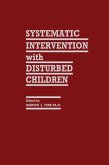This book tries to trace the course of social development in the child from birth to maturity. It assumes that the neonate comes into the world with the endowment and the need to contact others, to attach itself to the surrounding humans and by this very endowment enforces these humans to attach themselves to it. The book follows the main vicissitudes in this process and describes in short outlines some of the disturbing manifestations of failure at different ages in the smooth progress of socialization - the process by which the child adapts to the requirements of the social group of which he is a member. In accordance with recent studies the book stresses the influence on social development of the wider environment. It is no longer believed that the quality of the early mother child relationship exclusively determines all later develop ment. The book also surveys the present state of assessment and treatment methods and tries to indicate where short intervention by the developmental paediatrician might be sufficient and where more long-term intensive treatment by specialists would be needed. The author agrees with A. M. and A. D. B. Clarke (1976) that early experiences, though powerful, are not irreversible, and that with changes in environmental circumstances, and with under- 9 Social development standing of the main causal factors for the deviance, the effect of adverse early events may be modified and develop ment towards normal social progress may to some extent be restored.
Dieser Download kann aus rechtlichen Gründen nur mit Rechnungsadresse in A, B, BG, CY, CZ, D, DK, EW, E, FIN, F, GR, HR, H, IRL, I, LT, L, LR, M, NL, PL, P, R, S, SLO, SK ausgeliefert werden.









